IDF Rescues Jewish Worshippers Attacked Trying to Visit Joseph’s Tomb in Nablus
Praying at a Jewish Holy Site Requires an Armed Escort and Military Permission
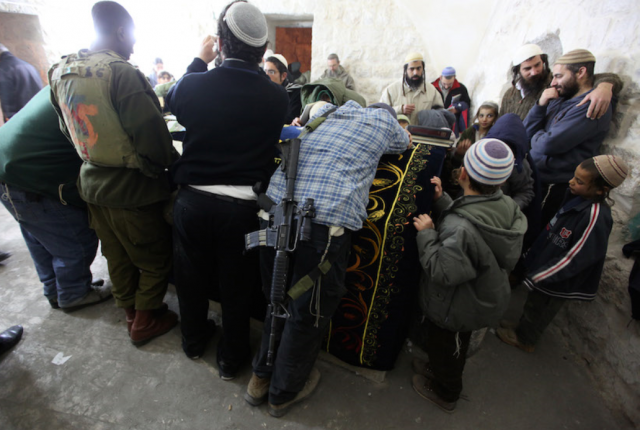
Early Tuesday morning, roughly 60 ultra-Orthodox Hasidic Jews tried to make an unauthorized visit to Joseph’s Tomb, located inside the Palestinian city of Nablus near the biblical city of Shechem.
According to multiple media reports (see here and here), the group had to be extricated by Israeli troops after their convoy came under attack by Palestinian rioters in the vicinity.
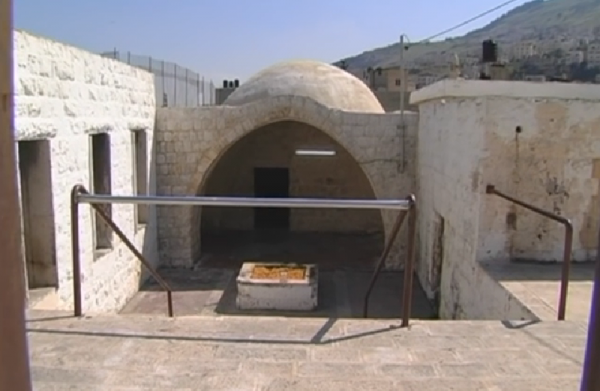
Joseph’s Tomb | 2011 | credit: YouTube screenshot
Ynetnews reports:
A group of Breslovers attempted to visit Joseph’s tomb overnight without coordination or authorization with authorities; two were lightly injured from stone-throwing…
Their bus, which bore Palestinian license plates, did not reach the tomb, as it was stopped at the entrance to the city, where it was attacked by stones. The bus drove away, and its passengers began to flee on foot. A large force of IDF soldiers arrived at the scene to rescue the Hassidim…
All the passengers were detained for questioning at the Israel Police station in Ariel, which is located in Samaria in the West Bank…
The police commented on the incident, ‘We view the events of tonight as extremely serious. Entries that aren’t coordinated and that aren’t under protection endanger both those entering and also the security forces who come to help’.”
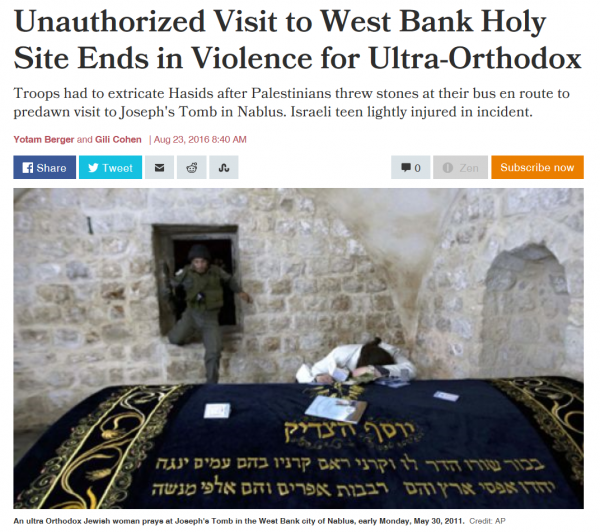
Credit: Haaretz
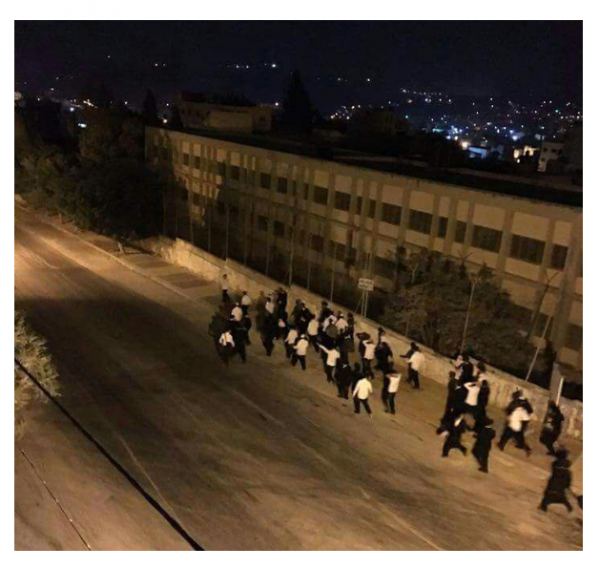
Breslau Hasidim Flee the Bus | (credit: Ynetnews.com
This isn’t the first time that the mere sight of Jews at this sacred shrine has been seen as an affront by Arab Muslims who live near there.
As we noted in a prior post, assaults on Jews who come to pray at the burial site—which many believe to be the final resting place of the biblical figure Joseph—are common.
There’s also no reason to believe that a security escort for the pilgrims would’ve guaranteed that they could’ve come and gone in peace.
In the past, as we highlighted in our earlier post, even with Jews visiting Joseph’s Tomb at night so as to minimize clashes with local residents, and accompanied there with massive amounts of police and IDF protection (e.g., armored vehicles, soldiers in riot gear), the convoys have still often come under attack.
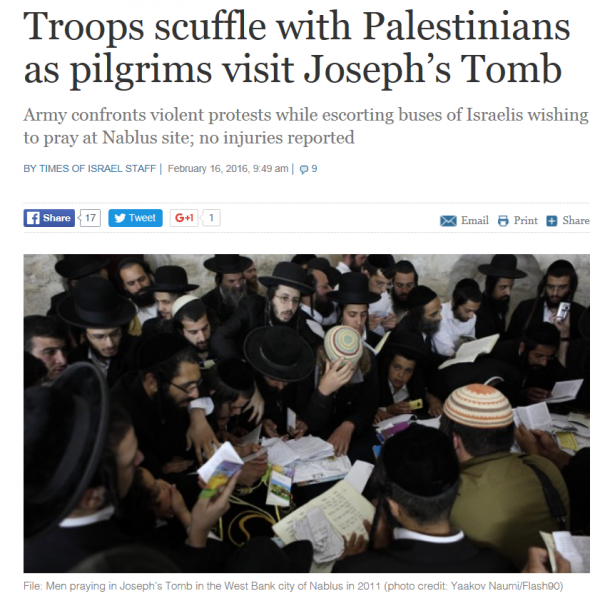
But the IDF and police are using this Tuesday’s incident to caution civilians against violating Israeli law by going to places like Joseph’s Tomb on their own (the shrine is located inside Area A of the West Bank, where the Palestinian Authority has full political and military jurisdiction, as stipulated by the 1995 Oslo II Accord).
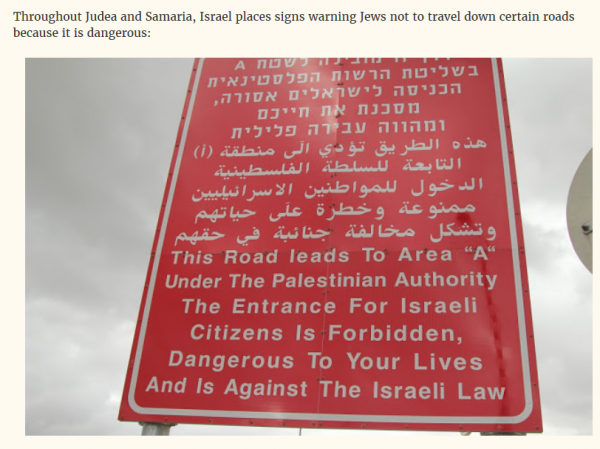
Credit: ElderofZiyon
It’s a message that’s not lost on Jewish settler leaders, who’re already trying to stop individuals and groups of worshippers from heading to the sacred site in these types of “wildcat pilgrimages”.
In response to this week’s unauthorized visit, Samaria Regional Council head Yossi Dagan reportedly expressed sympathy for devout Jews like the Breslau Hasidim who continue to risk life and limb to visit a place revered as one of the five holiest sites in Judaism.
In a statement, he noted that he’d also like to see the Od Yosef Chai yeshiva (seminary) that was once housed there, but was dismantled in 2000 at the start of the second intifada, rebuilt and returned to its old glory.
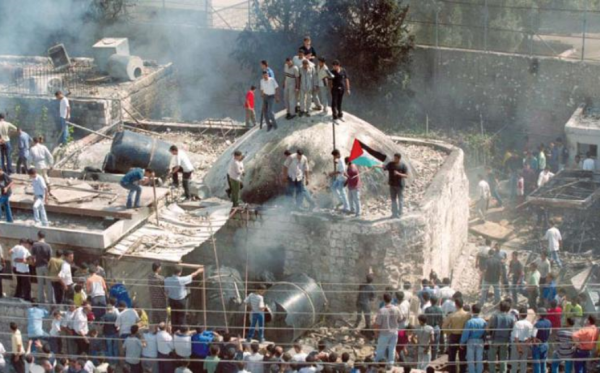
Palestinian mob destroying Joseph’s Tomb in Nablus | October 2000 | YouTube screenshot
But Dagan nonetheless called illegal entries to Joseph’s Tomb “irresponsible” in that they harmed the campaign to hold more prayer events there.
Dagan’s right.
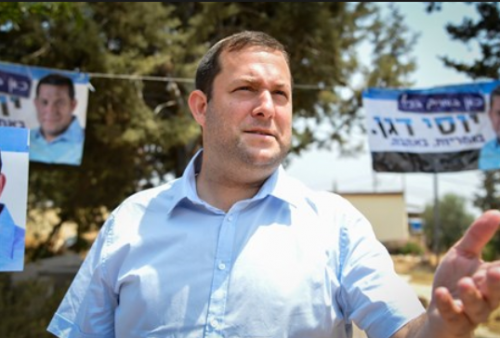
Yossi Dagan
The Breslau Hasidim and other devout Jews won’t secure their religious freedoms and improve on the present shameful situation—where worshippers can only pray at the shrine once a month in the dead of night—by acting unlawfully.
Still, convincing ultra-orthodox Jews that they’ll need to stop their unauthorized pilgrimages won’t come easy. That’s partly because there’s a widespread feeling that the “police discriminate” against the country’s religious citizenry when it comes to cracking down on these uncoordinated West Bank visits.
As Attorney Itamar Ben-Gvir, who is representing the 32 Breslau Hasidim arrested after Tuesday morning’s rescue operation, reportedly remarked:
When leftists extremists entered Ramallah and were attacked, the police didn’t arrest them, didn’t touch the matter, and no one called them in for questioning”.
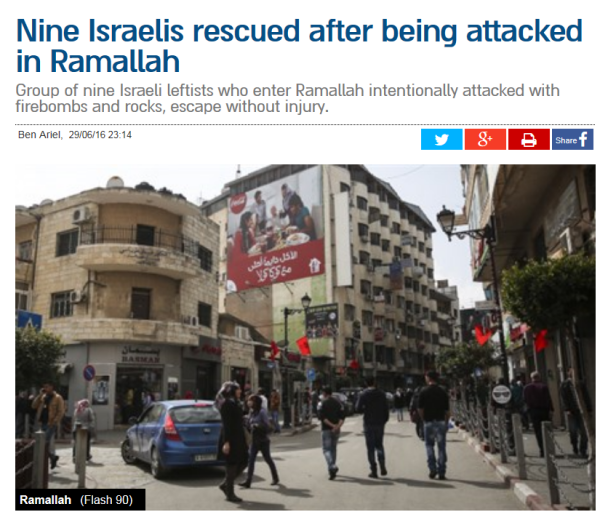
Credit: Arutz Sheva
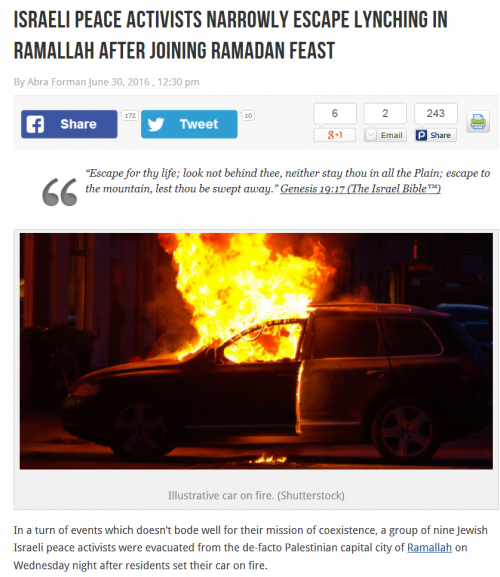
Credit: Breaking Israel News
Ben-Gvir raises a good point, but ultimately it’s not Israel’s security forces who’re at fault in these dicey and dangerous situations. Basically, all they’re doing is trying to save lives.
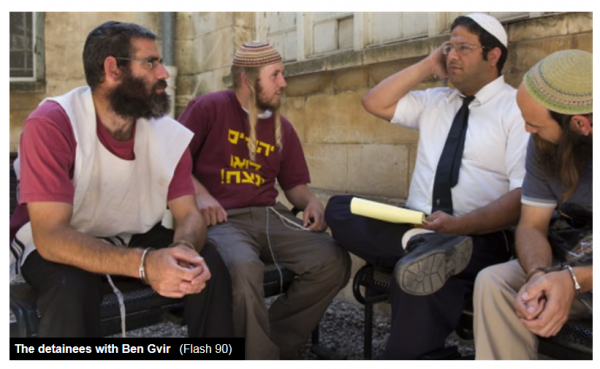
Credit: Arutz Sheva
Bottom line: The IDF wouldn’t have to enforce a strictly “off-limits to Israelis” policy in the West Bank’s Area A if the Palestinians who lived there behaved towards Jewish visitors with a modicum of respect and basic human decency and the Palestinian Authority was able and willing to live up to its pledges and obligations under the Oslo Accords and subsequent agreements. There’ll never be peace until Jews can freely enter and pass through Palestinian cities and towns unmolested by rocks, firebombs, and other assorted threats to their lives.

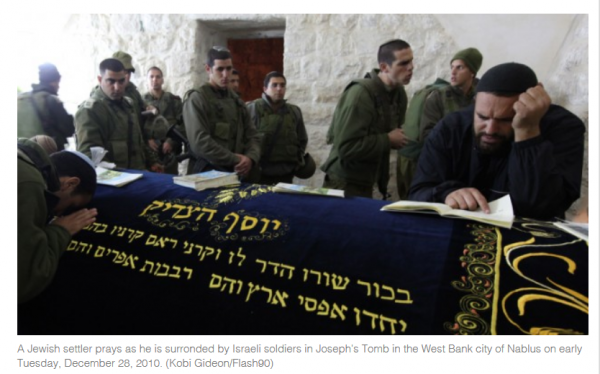
Here’s a short video about the religious and historical significance of Joseph’s Tomb, and the ongoing battle for Jewish prayer rights there:
Featured Image: Jews pray at Joseph’s Tomb, December 28, 2010 (Credit: Kobi Gideon/Flash90)
Miriam F. Elman is an associate professor of political science at the Maxwell School of Citizenship & Public Affairs, Syracuse University. She is the editor of five books and the author of over 60 journal articles, book chapters, and government reports on topics related to international and national security, religion and politics in the Middle East, the Israeli-Palestinian conflict. She also frequently speaks and writes on the Boycott, Divestment, and Sanctions (BDS) anti-Israel movement. Follow her on Twitter @MiriamElman
Donations tax deductible
to the full extent allowed by law.








Comments
When all is said and done, I’m all about rules and laws and such and one should not break the rules just to suit oneself.
However, it is an international shame that Jews cannot visit the Tomb of Joseph. I’m not Jewish however I’m very familiar with Joseph and his love and compassion for not just his brothers (after they’d sold him to the Midianites into Egypt and they went down there and met him) but also his love and compassion for the people of Egypt and how he was so blessed that he could help them prepare for the famine and survive.
For many generations the Jews in Egypt were considered a valuable asset and were a vital part of the Egyptian civilization until a new Pharaoh came and learned to hate them, and so it started. He was blessed by God for his service to everyone and his refusal to betray his master Potiphar and so on.
The tomb is now in the middle of Nablus, and the Arabs claim that it’s a Moslem site, but until quite recently it was outside Nablus (which is the Biblical city of Sh’chem), and was visited by nobody but Jews. Here’s a picture from about 1900, showing how empty the area was.
Under the Olso Accords Jews are supposed to have free access to the tomb, and the yeshivah is supposed to be maintained. The Arabs have kept that as well as they kept their 1949 agreement to allow Jews free access to the Western Wall, and to allow Israeli convoys up to Mt Scopus.